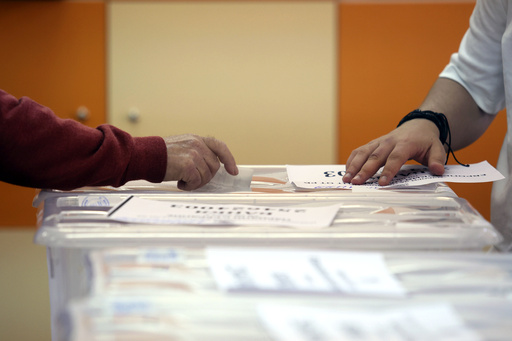
SOFIA, Bulgaria — Voters in Bulgaria will head to the polls on Sunday for the seventh time in a little over three years, amid increasing political turmoil that could potentially boost the standing of pro-Russian and far-right factions.
Out of the six elections that have occurred since 2021, only two have led to a functioning government, both of which ultimately faltered while attempting to implement reforms, tackle corruption, and reduce the nation’s ties with Russia.
The previous election, which took place in June, resulted in no clear victor, leaving seven parties in a fragmented legislature that struggled to forge a viable coalition. Analysts predict that the upcoming election is likely to yield similar outcomes, with limited prospects for breaking the ongoing political deadlock.
Polling agencies indicate that dissatisfaction with the political scene may lead to low voter turnout, resulting in another divided parliament where populist and pro-Russian factions could expand their influence. Stoyana Georgieva, a well-known analyst, anticipates a record-low participation rate, accompanied by a significant number of instances where votes may not be cast freely.
These occurrences could include reports of parties offering monetary incentives for votes or local entities exerting pressure on citizens to vote a certain way. Georgieva also highlighted the likelihood that Vazrazhdane, the leading pro-Russian party, could rise to be the second-largest group in the upcoming parliament. This ultra-nationalistic group advocates for the lifting of sanctions against Russia, halting aid to Ukraine, and a referendum on Bulgaria’s NATO membership.
Since 2020, Bulgaria, home to 6.7 million residents, has faced persistent political discord, initially sparked by extensive protests against corrupt officials who had allowed oligarchs to dominate state functions. As one of the poorest and most corrupt member states of the European Union, Bulgaria struggles against corruption, particularly given the challenges posed by an unrefined judicial system that is often seen as catering to the political elite.
Georgieva does not foresee a broadly acceptable compromise emerging from the next parliament. She described the potential for a compromise as “the least evil” outcome amidst the current regional turmoil, with conflicts in Ukraine and the Middle East placing Bulgaria in a precarious position.
According to her analysis, the next parliament is expected to comprise three primary party groups: the kleptocratic parties, led by the recently ruling GERB—associated with former Prime Minister Boyko Borissov, the parties striving for justice and liberal democracy, and the openly pro-Putin factions.
Georgieva believes that a coalition may form between pro-European, pro-Ukraine factions and the kleptocratic parties following the elections. Despite the similar outcomes recorded in previous elections since 2020, this election is anticipated to alter the political landscape, as the long-standing Socialist Party and the Movement for Rights and Freedoms (MRF) have recently faced significant internal discord.
The MRF, historically a representative of the ethnic Turkish community, has notably split into two competing factions: one led by its founder Ahmed Dogan, and the other rallying behind Delyan Peevski, a businessman and media figure who has been sanctioned by the U.S.
